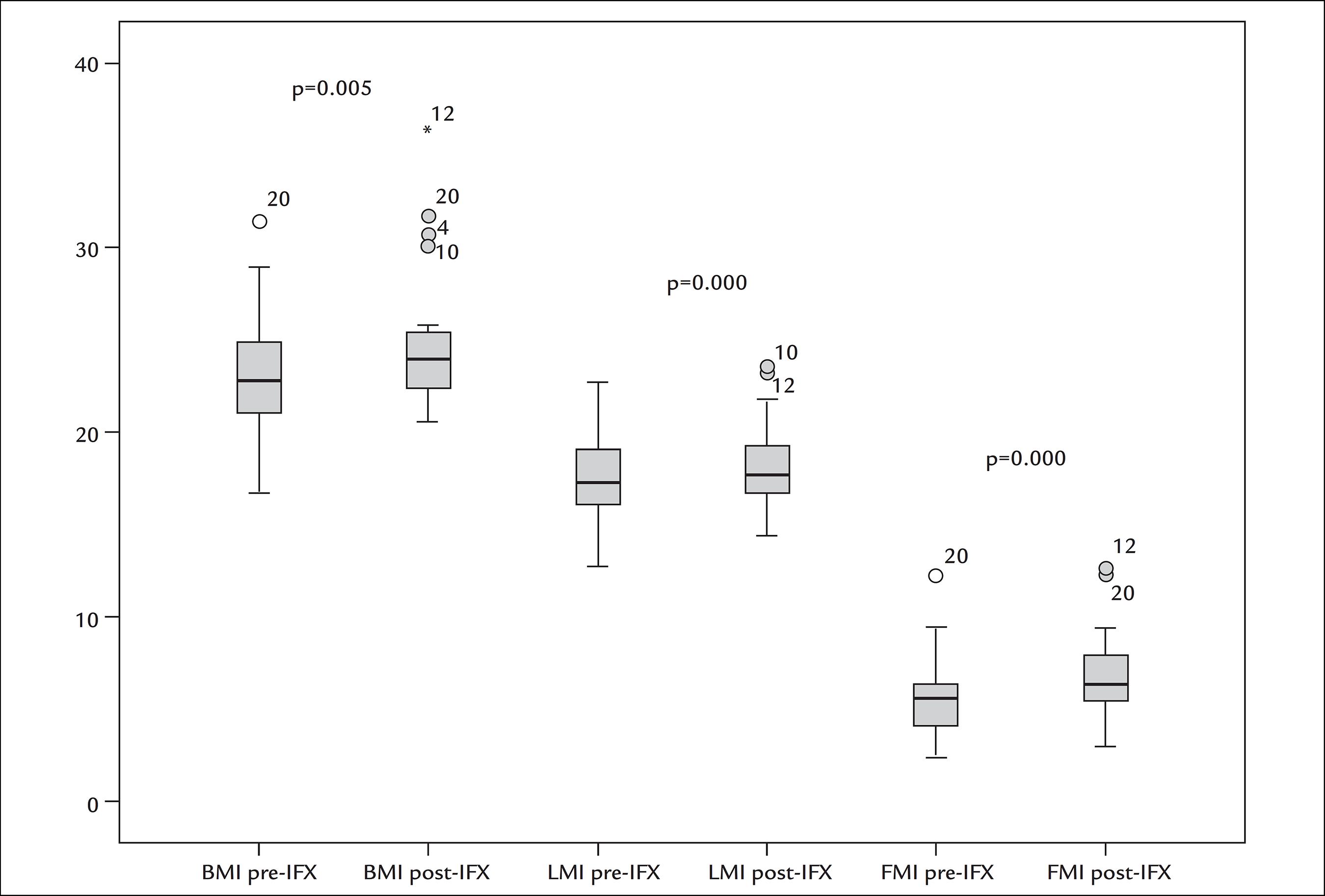Summary
Introduction:
Protein-energy malnutrition in Crohn's disease (CD) has been reported in 20 to 92% of patients, and is associated with increased morbidity and mortality and higher costs for the health system. Anti-TNF drugs are a landmark in the clinical management, promoting prolonged remission in patients with CD. It is believed that the remission of this disease leads to nutritional recovery. The effect of biological therapy on body composition and nutritional status is unclear.
Method:
Prospective study of body assessment by bioelectrical impedance method in patients with moderate to severe CD undergoing treatment with infliximab. The main outcome was the body composition before and after 6 months of anti-TNF therapy.
Results:
There was a predominance of females (52%) with a mean age of 42±12 years. Most patients were eutrophic at baseline and remained so. There was an increase in all parameters of body composition after anti-TNF treatment: BMI (22.9±3.2 versus 25±3.8; p=0.005), waist circumference (88.1±6.7 versus 93.9±7.7; p=0.002), lean mass index (17.5±2.2 versus 18.2±2.3; p=0.000) and fat mass index (5.5±2.3 versus 6.8±2.3; p=0.000). Phase angle remained unchanged (6.2 versus 6.8; p=0.94).
Conclusion:
After therapy with IFX, all components of body composition increased, except for phase angle. The substantial increase in fat mass index and waist circumference led to concern regarding cardiovascular risk and, thus, to the need for further studies.
Keywords:
Crohn's disease; body composition; biologics

